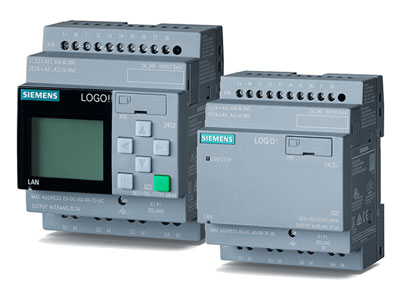How To Become A PLC Programmer?
Key Takeaway
To become a PLC programmer, start by earning a degree in computer science, electrical engineering, or mechanical engineering. Some programs offer a PLC certificate, which can be beneficial. Vocational training is also valuable, and many PLC programmers receive on-the-job training. Develop essential skills such as programming, troubleshooting, and understanding automation systems. Gain practical experience through internships or entry-level positions. Learn to use PLC programming software and tools. Pursue certifications to enhance your qualifications. Continuous learning and staying updated with industry trends will help you advance in your career as a PLC programmer.
Educational Requirements for PLC Programmers
To embark on a career as a PLC programmer, a solid educational foundation is essential. While there is no specific degree requirement, most employers prefer candidates with a background in electrical engineering, automation, or a related field. A bachelor’s degree or diploma from a recognized institution provides the necessary theoretical knowledge in areas such as control systems, digital electronics, and programming languages.

Essential Skills and Certifications
Acquiring essential skills and certifications is paramount for aspiring PLC programmers. Beyond formal education, proficiency in programming languages like ladder logic, structured text, and function block diagram is fundamental. These languages are the backbone of PLC programming, enabling programmers to create logic for controlling industrial processes effectively.
Moreover, familiarity with PLC hardware and software is crucial. Understanding the different components of PLC systems and how they interact is essential for developing robust automation solutions. Additionally, experience with industrial communication protocols such as Modbus and Ethernet/IP is highly valued by employers. These protocols facilitate communication between PLCs and other devices, enabling seamless integration within industrial networks.
Obtaining certifications from reputable organizations like the International Society of Automation (ISA) or equipment manufacturers can further validate one’s expertise. These certifications serve as a testament to your knowledge and skills in PLC programming, enhancing your credibility in the eyes of potential employers. By honing these skills and obtaining relevant certifications, aspiring PLC programmers can position themselves for success in the competitive field of industrial automation.
You May Like to Read
Steps to Gain Practical Experience
Gaining practical experience is a crucial step towards becoming a proficient PLC programmer. To kickstart your journey, consider seeking internships, co-op programs, or entry-level positions in industries that heavily rely on automation, such as manufacturing, automotive, or utilities. These opportunities provide hands-on exposure to PLC programming software, hardware troubleshooting, and configuring industrial networks, allowing you to apply theoretical knowledge in real-world scenarios.
Engaging in practical tasks like programming PLCs for specific applications, diagnosing and resolving issues with control systems, and collaborating with experienced professionals will help you develop essential skills and confidence in your abilities. Additionally, volunteering for projects or participating in online forums and communities dedicated to industrial automation can provide valuable learning experiences and opportunities to network with industry experts.
By actively seeking out practical experience opportunities and immersing yourself in hands-on learning environments, you’ll not only enhance your technical skills but also build a strong foundation for a successful career as a PLC programmer.
Tools and Software for PLC Programming
To excel as a PLC programmer, it’s crucial to become familiar with a range of tools and software essential for designing, implementing, and maintaining automation systems. Firstly, focus on mastering popular PLC programming software such as Siemens TIA Portal, Rockwell Automation Studio 5000, or Schneider Electric Unity Pro. These platforms offer intuitive interfaces and powerful features for developing PLC programs efficiently.
Additionally, invest time in familiarizing yourself with simulation tools, which enable you to test and validate PLC programs in a virtual environment before deployment, reducing the risk of errors and downtime during implementation. Moreover, understanding HMI/SCADA software is vital for creating intuitive user interfaces and monitoring/control systems that interface with PLCs.
Lastly, having proficiency in diagnostic tools is essential for troubleshooting and optimizing PLC programs. These tools enable you to identify and resolve issues quickly, ensuring the smooth operation of automation systems. By mastering these tools and software, you’ll be well-equipped to tackle the challenges of PLC programming with confidence and efficiency.
Career Advancement Opportunities
In the realm of PLC programming, there exists a plethora of opportunities for career advancement and growth. As you accumulate experience and expertise in the field, you’ll find yourself transitioning from entry-level positions to more senior roles, such as a senior PLC programmer, automation engineer, or control systems integrator. These roles often entail greater responsibilities and leadership opportunities, allowing you to spearhead projects and mentor junior team members.
Continuing education plays a pivotal role in advancing your career within the PLC programming domain. Pursuing advanced certifications and staying abreast of industry trends and emerging technologies are essential steps to remain competitive in the job market. Additionally, actively participating in professional development activities, such as attending workshops, conferences, and webinars, can broaden your skill set and enhance your professional network.
Moreover, embracing lifelong learning and adapting to technological advancements are key strategies for sustained career growth in this dynamic field. By continuously honing your skills and knowledge, you’ll be well-positioned to seize new career opportunities and navigate the evolving landscape of automation and control systems.
Conclusion
Embarking on a career as a PLC programmer requires a combination of education, practical experience, and continuous learning. By acquiring the necessary skills, certifications, and hands-on experience, you can lay a solid foundation for a successful career in industrial automation. Embrace opportunities for growth, stay curious, and never stop learning as you navigate your journey towards becoming a proficient PLC programmer. With dedication and perseverance, you’ll unlock endless possibilities in this exciting and ever-evolving field.
